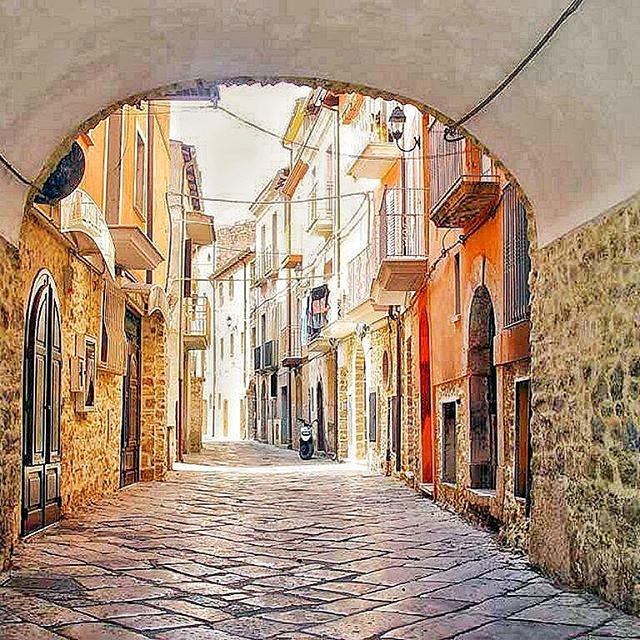Legend has it that the town was founded thanks to Hercules but, that aside, it was an ancient Greek commercial station and was subsequently under the influence of the Etruscans and, later, the Volsci.
It received Roman citizenship without voting rights in 338 B.C. and full citizenship in 188 B.C. and, of course, lies on the Roman road, the Appian Way. It suffered numerous periods of great poverty due to Barbarian and subsequently Saracen raids but achieved stability and its greatest moments of splendour under the Caetani family’s reign (1299-1504).
Building of the Castlewas begun in 1319 under Roffredo III, together with the restructuring of the town walls.
In 1378, the Cathedral of S. Pietro was the scene of the conclave of cardinals that elected the Antipope Clement Vll in opposition to the legitimate Pope, Urban VI, and giving rise to the Great Schism of the Western Church which lasted until 1417.
At the end of the 15th century, the reign was passed to Prospero Colonna whose son, Vespasiano, married the very beautiful Giulia Gonzaga who continued to govern over a period of great splendour and cultural revival , despite the early death of her husband.

Her fame and beauty attracted artists and illustrious persons to the town but also the infamous corsair, Kair-Ed-Din, Barbarossa, who, in 1534 attacked the city to kidnap Giulia in order to gift her to the Sultan Suleiman II. Giulia managed to escape but, in revenge, Barbarossa sacked and burned the city to the ground.
It was only in 1806, with the abolition of feudalism, that Fondi became part of the new municipal organisation but Pope Pius VII, in 1818, removed the cathedral status from the Church of S. Pietro moving the nearest cathedral to the nearby town of Gaeta.
The Giudea is the ex-Jewish quarter of the city’s historic centre. There are documents showing the presence of Jews in the 14th and 15th centuries working as linen, silk and hemp weavers but they were also bankers, judges and administrators for the Caetani family. However, in 1540, Charles V expelled the Jews from the Reign of Naples, causing them to leave the city of Fondi. The area has recently undergone extensive restoration.